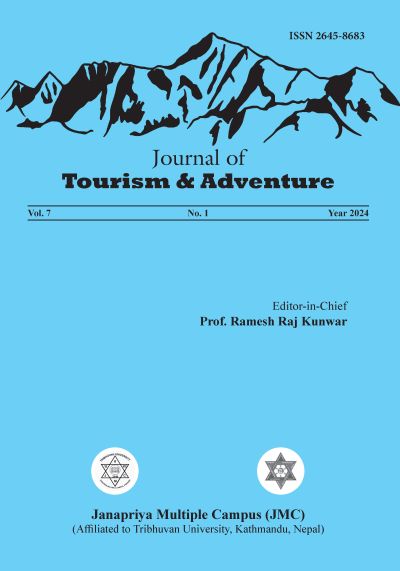Issues on Tourism and Destination Management in Karnali Province, Nepal
DOI:
https://doi.org/10.3126/jota.v7i1.69540Keywords:
Destination management, responsibility, ethical entrepreneurship, governance, sustainabilityAbstract
This paper argues that numerous tourist destinations exist in the developing zone of Nepal, particularly in the Karnali province. Many florae and fauna are available in the zone that the panoramic tourist products ever tempt the visitors, which demand for intensive studies of culture, livelihood and public dynamics. Several hills, peaks and mountains in this zone attract tourists and create pressure to the concerned authority to take right actions on time. Several places of interests in different parts of the area still need appropriate management, which would produce the best income resources for the state to invest in the development sectors. This is the productive realm of medicinal herbs that the users still use it irrationally throughout the territory without appropriate workforce. The data were collected from 33 respondents with key informant interview, focus group discussion and personal communications. The invaluable resources available in this area are of multiple significance which export would bring huge amount for financial reservoir of a country. For comprehensive development of the region tourism, hydropower, medicinal herbs, rafting, paragliding, nature, ethnic tourism are the best means for knowledge creation there as well. The responsible state authorities must take appropriate steps in managing the multiple issues through public participation in order to convert the recent status of the territory.
Downloads
Downloads
Published
How to Cite
Issue
Section
License
Authors retain the copyright of their articles.




